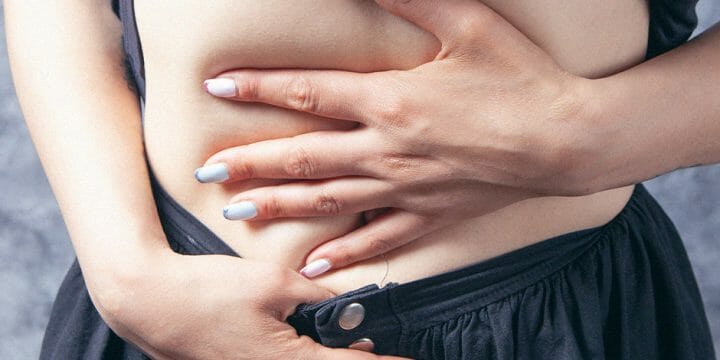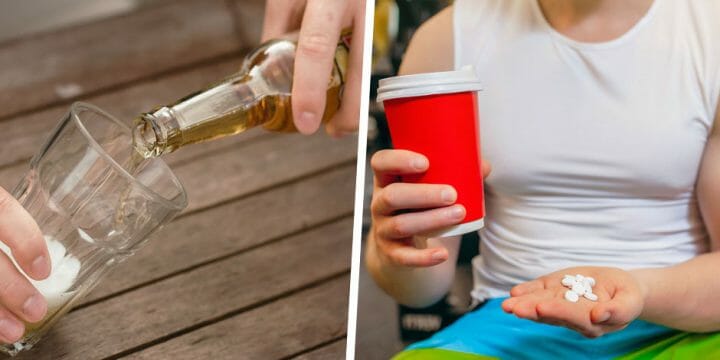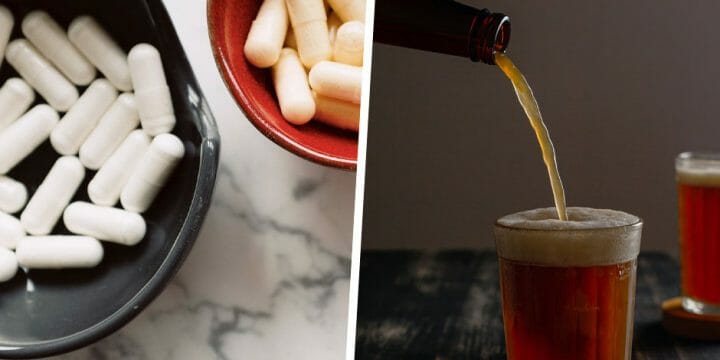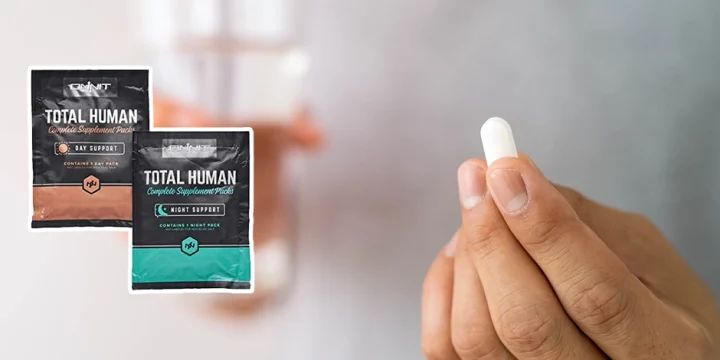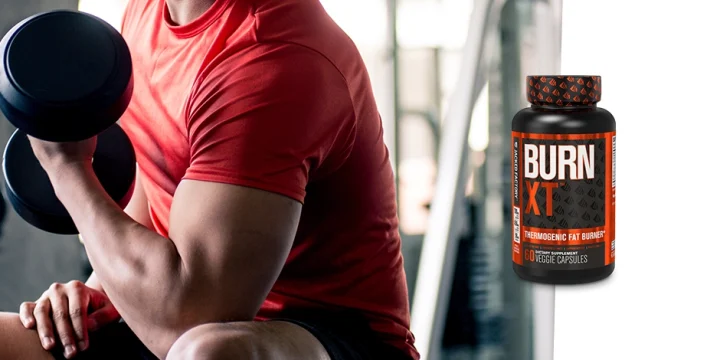With over a decade of fitness coaching expertise, I've learned that alcohol consumption can affect the process of fat-burning.
Based on my extensive research, moderate alcohol intake is less likely to significantly impede fat burning, but excessive drinking can hinder your body's ability to efficiently burn fat. It's crucial to strike a balance for optimal fitness results.
This article will delve into various research findings on the subject to provide in-depth insights into how alcohol affects weight loss.
Quick Summary
- Alcohol doesn't completely stop fat burning, but it can affect the process depending on the level of consumption.
- Low testosterone levels, fatty liver, and excessive belly fat are some conditions linked to excessive alcohol consumption.
- For weight-conscious individuals, choosing alcoholic drinks with fewer than 105 calories per serving is recommended.
- As a fitness trainer, I always advise my clients to moderate their alcohol intake while prioritizing healthy eating, regular workouts, and incorporating natural fat-burning supplements.
Does Alcohol Consumption Affect the Fat-Burning Process?

Yes, alcohol consumption affects the fat-burning process by disrupting metabolism, prioritizing alcohol processing over fat burning, and contributing empty calories. Let’s go through the most important points and detail each one.
Empty Calories
Alcohol affects fat burning through its contribution of empty calories. With little nutritional value, alcohol, especially in mixed drinks, adds extra calories that can impede weight loss efforts, even with a healthy diet.
Body’s Metabolic Preference For Alcohol
According to the National Institute of Health, during alcohol metabolism, the body prioritizes processing alcohol over burning fat and absorbing nutrients from other foods, disrupting the natural metabolic balance [1].
Fatty Liver and Other Health Conditions
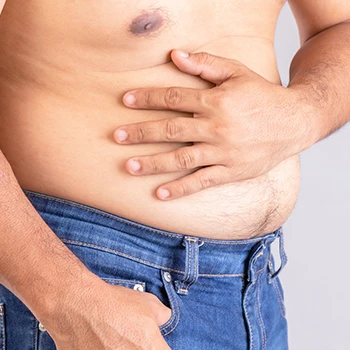
According to the Oxford Academic Journal, heavy drinking, even over a short period, can lead to alcoholic fatty liver disease. This affects the liver's function and contributes to overall health problems, including heart disease, stroke, and certain cancers [2].
Weight Gain
Alcohol's high sugar content, particularly in beverages like beer, can contribute to weight gain as excess calories from simple sugars get stored as fat, often accumulating in the abdominal region, commonly referred to as the "beer belly."
Low Testosterone
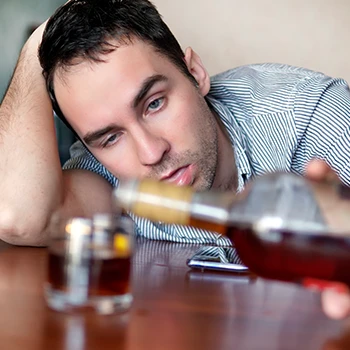
Alcohol consumption is linked with reduced testosterone levels, a hormone crucial for metabolism, muscle building, and fat burning, according to research. Also, a journal from Oxford Academic suggests low T levels can negatively affect weight loss goals [3] [4] [5].
Increased Appetite
Research published in Nature Communications indicates that alcohol's impact on inhibitions can trigger increased appetite and poor food choices, leading to overeating and further affecting weight loss efforts [6].
How Is It Processed in the Body?
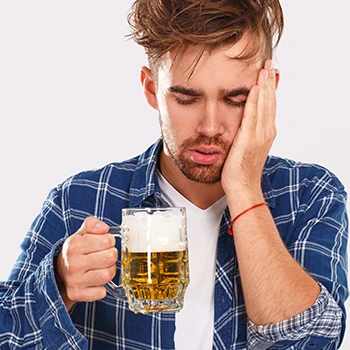
After consumption, alcohol is quickly absorbed from the small intestine into veins, collecting blood from the stomach and portal vein, according to the National Institute of Health [7].
It then reaches the liver, where enzymes metabolize it. Due to the small size of alcohol molecules, they easily dissolve in fat and water, rapidly entering the bloodstream.
Drinking on an empty stomach accelerates absorption, with some entering the bloodstream directly from the mouth, esophagus, and stomach walls.
4 Tips on Alcohol And Weight Loss
Here are some tips to avoid the effects of alcohol on your fat loss:
- Limit drinking to once a week, once a month, or only on cheat days.
- If you can't abstain, minimize alcohol intake per session.
- Avoid binge-drinking on drinking days to prevent disruptions to your diet and workout progress.
- For occasional drinkers, consider using alcohol as a reward after an accomplishment or special occasion to avoid the urge to binge.
Calorie Content Of Popular Alcoholic Drinks
Popular alcoholic drinks have varying calorie content. Let's review the following list.
- Regular beer (12 oz): 103 Calories
- Gin (1.5 oz): 97–116 Calories
- Rum (1.5 oz): 97–116 Calories
- Vodka (1.5 oz): 97–116 Calories
- Whiskey (1.5 oz): 97–116 Calories
- Glass of wine (5 oz): 120–160 Calories
Related Articles:
FAQs
How Long After Working Out Can I Drink Alcohol?
It's advisable to wait at least an hour after working out before drinking alcohol. This allows your body to recover and rehydrate, preventing interference with the post-exercise recovery process. Consuming alcohol too soon after exercise may hinder muscle repair and hydration efforts.
Does Alcohol Stop Ketosis?
While alcohol doesn't completely stop ketosis, it can impede the process based on consumption levels. When you drink, your body prioritizes metabolizing alcohol over burning fat for energy. Moderate alcohol intake is less likely to significantly disrupt ketosis, but excessive drinking may slow down the fat-burning state.
What Are the Best Alcoholic Drinks for Weight Loss?
The best alcoholic drinks for weight loss are vodka, rum, champagne, tequila, and whiskey, each containing fewer than 105 calories per serving. These choices align with weight loss goals by minimizing the impact of alcohol consumption on overall calorie intake while still allowing for enjoyment.
References:
- https://www.ncbi.nlm.nih.gov/pmc/articles/PMC6527027/
- https://academic.oup.com/alcalc/article/48/5/627/209734
- https://joe.bioscientifica.com/view/journals/joe/217/3/R25.xml
- https://www.ncbi.nlm.nih.gov/pmc/articles/PMC5054608/
- https://academic.oup.com/jcem/article/93/7/2602/2598749
- https://www.nature.com/articles/ncomms14014
- https://www.ncbi.nlm.nih.gov/pmc/articles/PMC3484320/
About The Author
You May Also Like
